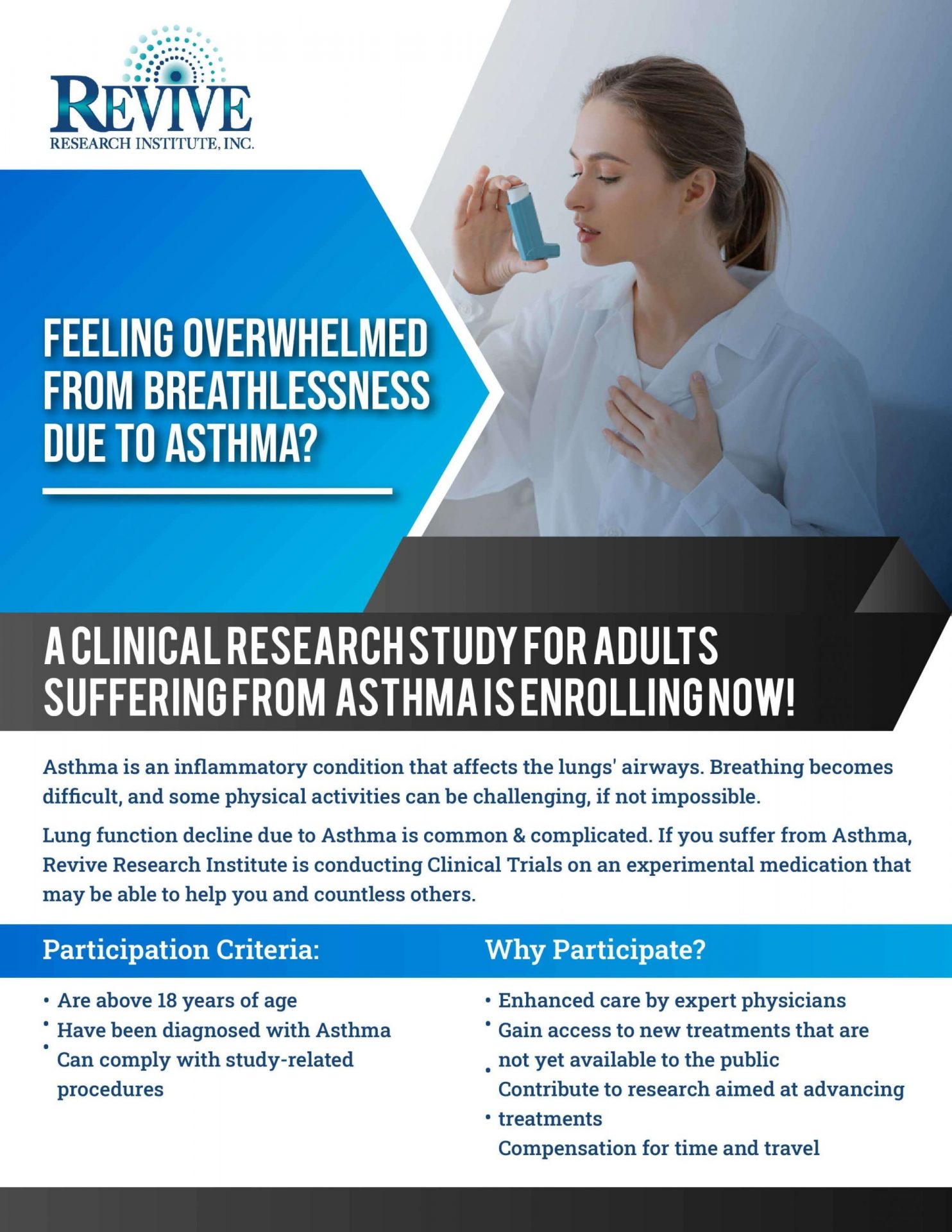Asthma Leaving You Out Of Breath?
Asthma Clinical Trials May Be An Option!
Asthma affects over 25 million Americans, according to the Centers for Disease Control and Prevention (CDC).
Asthma is an inflammatory condition that affects the lungs’ airways. Breathing becomes difficult, and some physical activities can be challenging, if not impossible. Asthma can be triggered by a variety of causes, and symptoms might worsen as a result.
At Revive Research Institute we understand how inconvenient asthma episodes may be. We are conducting novel Asthma Clinical Trials in search of a potential treatment for Lung Function Decline in Asthma patients.
You may be eligible to participate in the Asthma Clinical Trials if you:
- Are above 18 years of age
- Have been diagnosed with Asthma
- Have history of severe exacerbation
- Can comply with study-related procedures
We are conducting a Phase 3/4 Clinical Research Trials with the goal of assessing the long term effects of a study drug that may help in the prevention of lung function decline in Asthma patients diagnosed with uncontrolled moderate to severe asthma.
*If you fulfill the requirement and choose to participate in the Lung Function Decline due Asthma Clinical Trials, you will be provided with free study-related care and treatment. Our Pulmonologists, nurses, and research staff will provide each of the participants with study-related care and will monitor your health throughout the duration of your participation in the study.
*All participants will be monetarily compensated for their time and travel throughout the duration of their participation in the research study.


